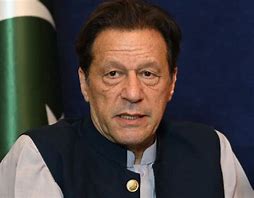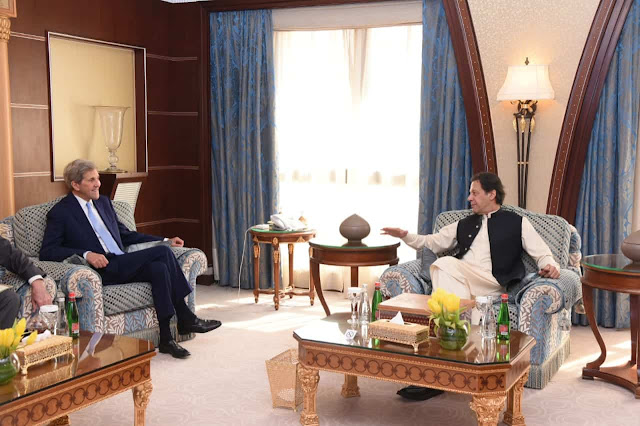Discover the growing trend of atheism among Pakistani youth and explore the misconceptions surrounding it. Delve into the duality of common Muslim behaviours, the influence of social media, and the importance of open dialogue and spiritual exploration. Uncover the genuine teachings of Islam, emphasizing peace, humanity, and respect. Join the conversation on addressing concerns and facilitating understanding in Pakistani society.
Introduction
In recent years, there has been a distressing figure circulating on social media with no authentic source, claiming that three million Pakistani youngsters are abandoning their religious beliefs and converting to atheism. This alarming trend has sparked debates and concerns within the society. However, it is crucial to examine the factors contributing to this phenomenon and address the misconceptions surrounding it. In this article, we will explore the general behaviours and corrupt practices among some Muslims, shed light on the attitudes of a few religious leaders, and discuss the importance of open dialogue and spiritual exploration for the Pakistani youth.
1. The Duality of Common Muslim Behaviors
While many Muslims profess their faith and worship Allah, it is disheartening to witness the discrepancy between their religious beliefs and their conduct in their daily lives. It is not uncommon to find instances where individuals fail to adhere to the principles and teachings of Islam when it comes to treating others with kindness, respect, and fairness. This disparity between the professed faith and practical actions can lead to disillusionment and doubts among the youth.
1.1 Hypocrisy and Disobedience
In some cases, Muslims may prioritize personal interests and desires over their religious obligations. This can manifest in various ways, such as dishonest business practices, unfair treatment of others, or neglecting the rights of their human partners. Such behaviours contradict the core teachings of Islam, which emphasize the importance of integrity, justice, and compassion in all aspects of life.
Why Are Ordinary People Becoming Corrupt in Pakistan?
1.2 Harsh Attitudes of Religious Leaders
Unfortunately, few religious leaders, known as Ulamas and Molanas, exhibit harsh attitudes and judgmental behaviour towards those who question or express doubts about their faith. This authoritarian approach can alienate young individuals who seek answers and meaningful discussions. Religious leaders need to promote a compassionate and understanding environment that encourages healthy debates and allows to explore different perspectives.
2. Influence of Social Media and Modern Temptations
With the advent of social media and increased exposure to the developed world, Pakistani youth are vulnerable to temptations and modern lifestyles. This exposure often leads to a conflict between traditional values and the charisma of a more luxurious and materialistic existence. The constant bombardment of contrasting ideologies and extravagant lifestyles can create confusion and disillusionment among impressionable individuals.
3. Bridging the Gap: Understanding True Islam
It is crucial to emphasize the distinction between the behaviour of some common Muslims and the true spirit of Islam to address the growing trend of atheism among Pakistani youth. Islam, at its core, is a religion that promotes peace, justice, and humility. It encourages individuals to seek knowledge, understand the Arabic language of the Quran, and explore the countless blessings bestowed by Allah.
3.1 True Spirit of Islam
Islam, the religion of peace and humanity, holds a significant place globally. It is a religion that emphasizes respect for every human being, regardless of their common beliefs. In Islam, the focus is on hating cruelty and injustice rather than the individuals perpetuating them. It teaches its followers to embrace compassion, kindness, and love as fundamental principles of human interaction.
One of the fundamental teachings of Islam is the importance of respecting the dignity and rights of all individuals. Islam strongly condemns any form of discrimination or prejudice based on race, ethnicity, or religion. It emphasizes the value of equality and justice, promoting a society where every person is treated with fairness and kindness.
In the teachings of Islam, Muslims are encouraged to demonstrate empathy and compassion towards others. Prophet Muhammad (peace be upon him) set a profound example of mercy and forgiveness, even towards his enemies. This exemplifies the essence of Islam as a religion that promotes peace, understanding, and tolerance.
Islam also emphasizes the importance of dialogue and mutual understanding among people of different faiths and backgrounds. Muslims are encouraged to engage in respectful discussions and peacefully share their beliefs. It is through open and honest conversations that bridges can be built, and misconceptions can be addressed.
Furthermore, Islam teaches Muslims to stand against oppression and injustice. It calls upon its followers to defend the rights of the marginalized and vulnerable members of society. Muslims are encouraged to promote peace, alleviate suffering, and work towards the betterment of humanity as a whole.
It is crucial to recognize that Islam is a diverse religion with followers from various cultures and backgrounds. While there may be differences in practices and interpretations, the core message remains the same: to uphold peace, justice, and respect for all.
3.2 Learning from Prophet Muhammad\’s Example
The life of Prophet Muhammad (PBUH) serves as a beautiful example for Muslims to follow. His teachings and actions exemplify compassion, forgiveness, and respect for all individuals. By studying and investigating his conduct, Pakistani youth can gain a deeper understanding of the principles of Islam and strive to embody them in their lives.
3.3 Encouraging Healthy Debates
It is essential to create an environment where young individuals feel safe and empowered to question their faith and engage in healthy debates. We can foster critical thinking and help clarify misconceptions by encouraging dialogue and open discussions. Through patient and respectful conversations, we can guide the youth towards a better understanding of their faith and address their concerns.
Conclusion
The increasing number of Pakistani youngsters turning away from religion and embracing atheism is a cause for concern. However, it is essential to approach this issue with empathy, understanding, and a willingness to address the underlying problems. By acknowledging the general behaviours and corrupt practices among some Muslims, reforming the attitudes of religious leaders, and encouraging open dialogue and exploration of faith, we can create an environment that nurtures spiritual growth and preserves the Islamic values cherished by Pakistani society.
Islam is a religion that preaches peace, humanity, and respect for every human being. It encourages its followers to hate cruelty and injustice while embracing compassion, forgiveness, and understanding. By following the implied teachings of Islam, Muslims strive to create a harmonious and inclusive society where all individuals should be treated with dignity and equality.
FAQs
- Are all Pakistani youngsters converting to atheism? No, the claim that three million Pakistani youngsters are converting to atheism is a figure circulating on social media with no authentic source. It does not reflect the entire youth population as well. It is important to address the underlying reasons for this trend rather than generalize the situation.
- What can be done to combat the growing trend of atheism? Addressing the issue requires a multifaceted approach. It involves promoting authentic Islamic teachings, encouraging open dialogue, and providing opportunities for spiritual exploration. Additionally, religious leaders should adopt a compassionate and understanding stance to facilitate discussions and address the concerns of the youth.
- How can parents and educators play a role in preventing this trend? Parents and educators should foster an environment of open discussion where young individuals feel comfortable debating their doubts and questions about religion. By providing accurate information, encouraging critical thinking, and promoting a balanced understanding of Islam, parents and educators can guide the youth towards a stronger connection with their faith.
- Is it wrong to question religion? Questioning religion is a natural part of spiritual growth and intellectual development. It is important to approach questions with an open mind and seek knowledge to deepen one\’s understanding of faith. Healthy and respectful questioning can lead to a stronger connection with religion, rather than a rejection of it.
- What role does personal behaviour play in preventing the trend of atheism? Personal behaviour plays a crucial role in shaping perceptions of religion. By embodying the teachings of Islam in their actions, individuals can serve as positive examples for others. Living a life that reflects the principles of compassion, justice, and humility can inspire the youth to explore and embrace their faith.











زبردست